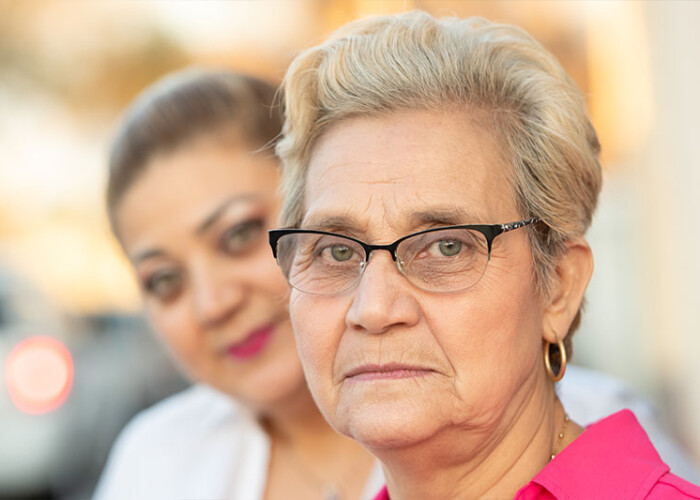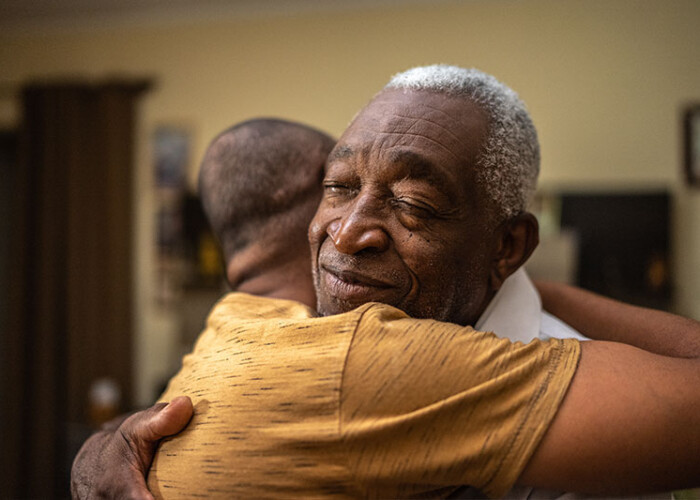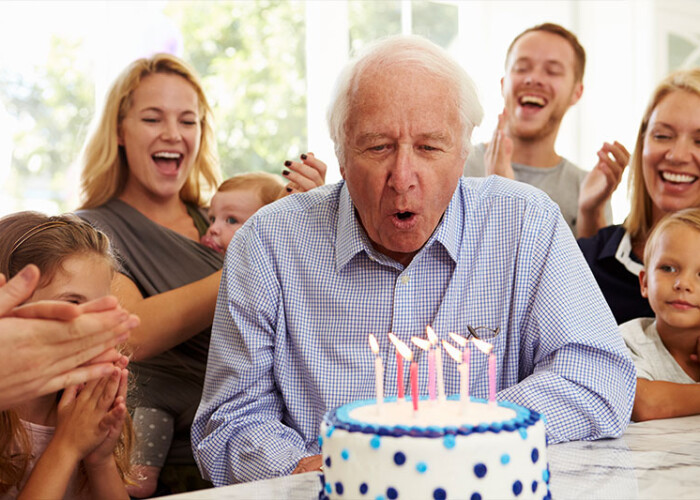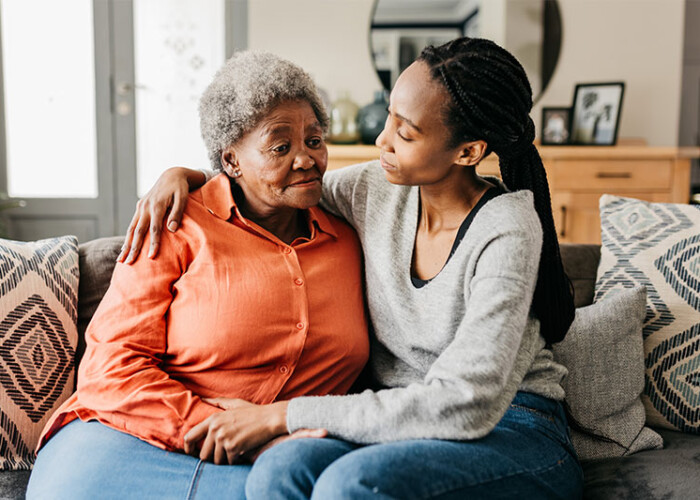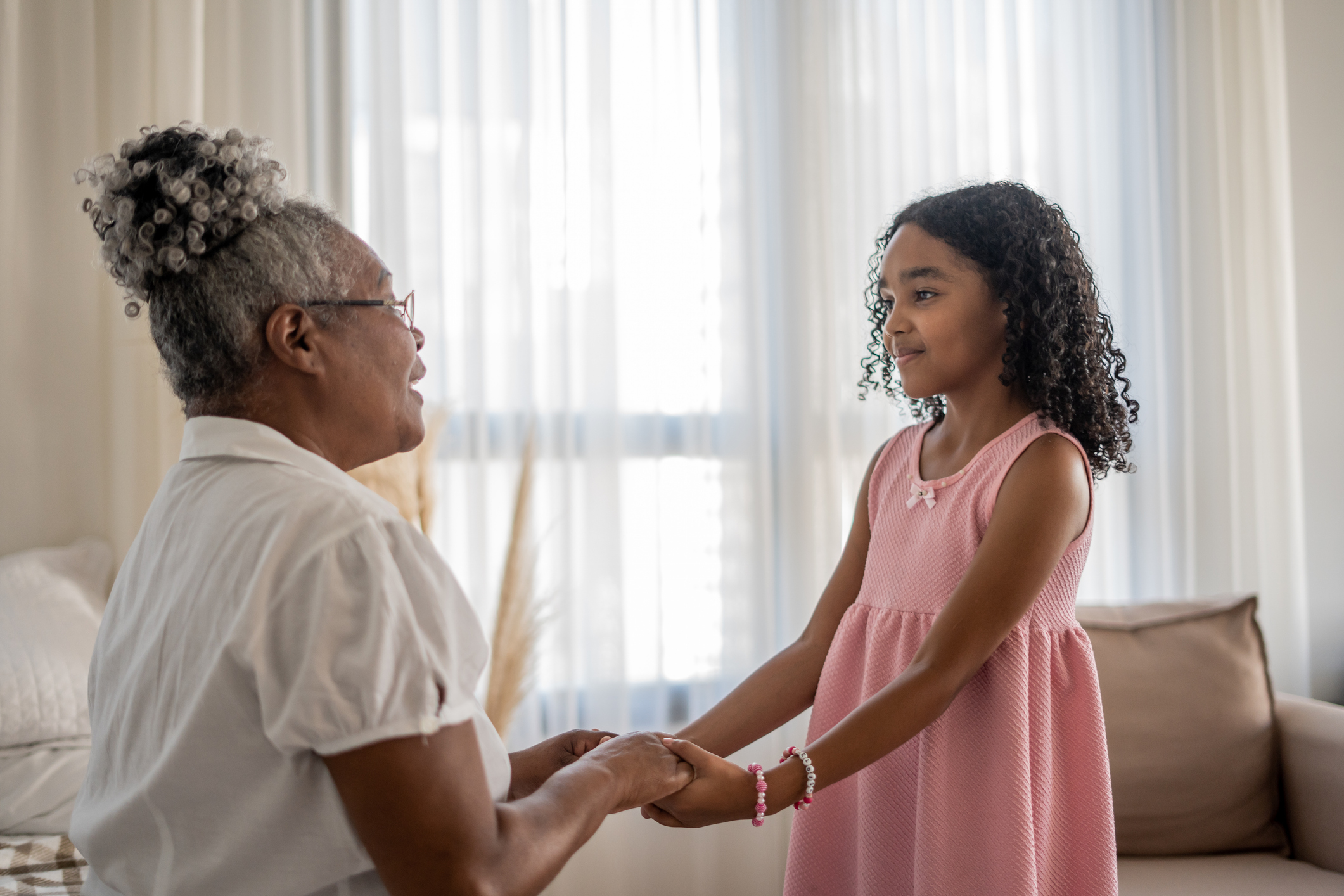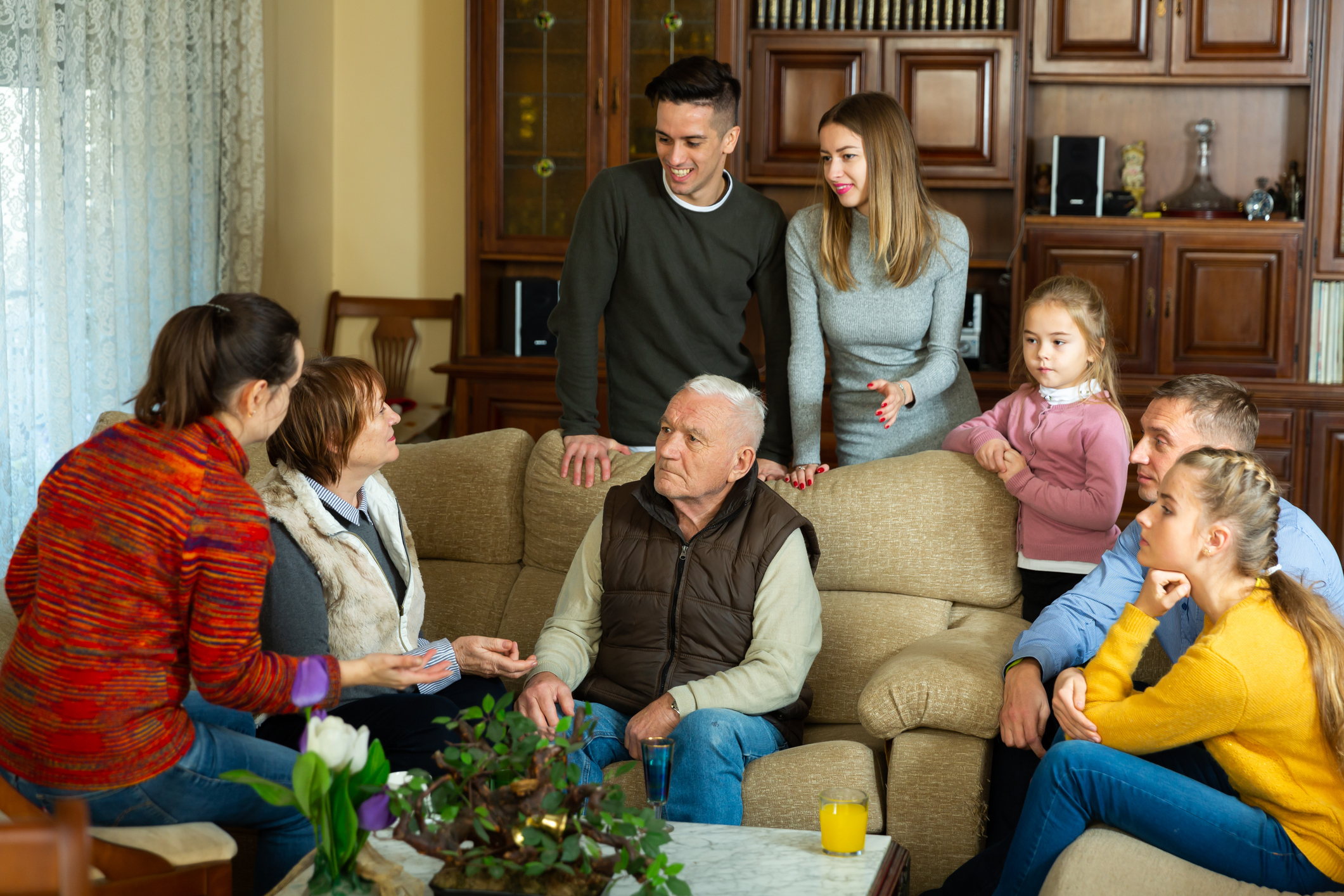Caregiver Support Tip
Is It Anxiety, Depression, or PTSD in a Senior Loved One? Here’s How to Tell.
It’s important to recognize the signs of PTSD in a senior loved one and know where to turn for help.
A sudden crack of fireworks booms overhead, and the person next to you stiffens. A song drifts through the room, and you notice a shift in their expression. For someone who has lived through trauma, everyday sights, sounds, and smells can be powerful reminders of painful experiences. What might appear to be nerves, stress, or even age-related changes can actually be something much more complex: PTSD in a senior loved one.
How to Conquer the Fear of Falling in Older Adults
Don’t let the fear of falling in older adults hold back someone you love from living life to the fullest!
Aging brings wisdom, perspective, and cherished memories—but it can also bring new worries. One of the most common concerns is the fear of falling in older adults. While understandable, this fear can quietly steal independence, limit activity, and lead to feelings of isolation. In fact, many people avoid walking outdoors, exercising, or even socializing because they worry about losing their balance.
We Hear You! Here’s the Family Caregiver Support You’re Telling Us You Need.
When caregivers were asked what they really needed, here’s what they had to say about family caregiver support.
It might be hard to imagine feeling invisible when you spend so much time with someone you love, but for many family caregivers, it’s a common theme. They describe their daily role as both rewarding and exhausting—a balancing act where their loved one’s needs come first and their own often fall last. Over time, that imbalance can take a toll.
What Are Catastrophic Reactions in Alzheimer’s, and How Should You Handle Them?
Learn about catastrophic reactions in Alzheimer’s, including what to watch for, how to prevent them, and how to manage them if they occur.
Caring for someone with Alzheimer’s is a little like walking through shifting sands. Just when you think you’ve found steady ground, the landscape changes. One of the most startling effects you may encounter is what’s known as catastrophic reactions in Alzheimer’s disease—a sudden, overwhelming emotional outburst that can erupt from something as simple as a routine question or a minor change in environment.
10 Unique Birthday Party Ideas for Seniors That Everyone Will Love
Try one of these memorable birthday party ideas for seniors.
Celebrating a birthday is always special, but when it’s for someone who has lived through decades of stories, milestones, and cherished experiences, it becomes even more meaningful. Coming up with unique birthday party ideas for seniors isn’t always easy, however. How do you plan a celebration that will be remembered long after the candles are blown out? It starts with centering the party around the guest of honor. Ask yourself:
When Is 24-Hour Care for Dementia the Right Choice?
Knowing when to seek 24-hour care for dementia can make a world of difference in safety, health, and peace of mind.
Dementia doesn’t follow a neat timeline. Some days feel manageable. Others feel overwhelming. As the condition progresses, changes in behavior, cognition, and physical health can leave you wondering if the current level of support is enough. Understanding when 24-hour care for dementia becomes necessary can help you make informed decisions that protect not only the safety and health of the person you love, but your own well-being as a caregiver.
Time Management Tips for Caregivers Who Feel Stretched Too Thin
Time management for caregivers is possible with the right support, structure, and a little help from Hired Hands Homecare.
How much extra time do you have on your hands? If you’re like most family caregivers, the answer is probably… not much. Between appointments, meal prep, medication reminders, housework, and all the unexpected challenges that pop up in a day, carving out time just for yourself can feel impossible.
The Unexpected Challenges of Supporting an Older Adult Through Grief
Loss is never easy, but it tends to feel even heavier with age. After a lifetime of building meaningful relationships, each goodbye can feel like a piece of the heart breaking away. If you’re supporting an older adult through grief, you may feel unsure of what to say or do, but your presence and empathy can make all the difference.
Create Connection Through Cooking With Someone Who Has Dementia
The kitchen is a place where stories are told, hands are busy, and memories simmer right alongside the soup. That’s what makes cooking with someone who has dementia such a powerful tool; it connects the past to the present in ways words sometimes can’t.
What to Expect Emotionally When Your Caregiving Role Ends
Knowing what to expect emotionally when your caregiving role ends can help you heal, reflect, and begin to rediscover yourself.
When caregiving becomes your full-time reality, it can be hard to imagine life any other way. So, when that chapter comes to a close, the quiet that follows can feel overwhelming. If you’re struggling with what to expect emotionally when your caregiving role ends, you’re not alone. This transition brings a wide mix of feelings that can be confusing, unexpected, or even contradictory.





